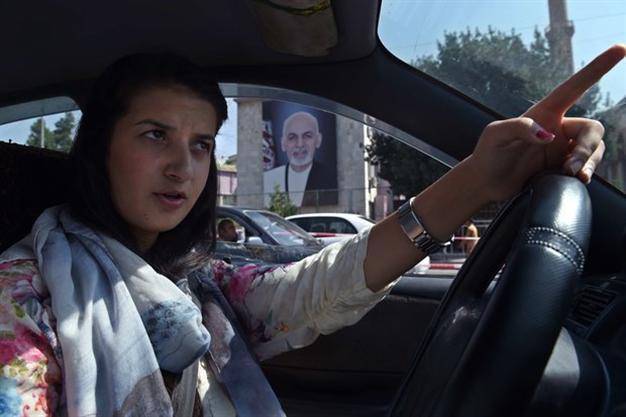For Afghan women, driving a car brings both fear and freedom
KABUL – Agence France-Presse

AFP photo
Since Rokhsar Azamee began driving the streets of Kabul last year, she has endured condescension, ridicule, and even threats to her life with some men deliberately causing “accidents” to harass her. But she will not be deterred.
The 23-year-old journalist learned to drive to avoid aggravation from men in the street as she waited each morning for a taxi with a driver who would not hassle her on the way to work.
But even the purchase of her own car has not shielded her from condemnation in the male-dominated, ultra-conservative society of Afghanistan.
“For many men,” she says, “it is a new thing to see a woman drive a car, they will harass you. One way to do so is by causing an accident.”
Once as she was heading home in her white 1997 Toyota Corolla, she was followed by a group of four or five men driving an SUV.
Her anxiety growing, she kept driving until they blocked her in a semi-deserted street in downtown Kabul, forcing her to pull over.
But as the men began to clamber out of their vehicle, she saw her chance to escape - reversing quickly then hitting the accelerator.
“It was very horrible experience for me,” she says.
It was not always like this. Up until the 1990s Afghan women were commonly found behind the wheel - even driving buses, in the big cities at least.
But in 1992, when the communist regime in Kabul collapsed and civil war broke out, women drivers were slowly discouraged.
And as the extremist Taliban group swept to power in 1996, women were banned not only from driving, but from even leaving their homes without a burqa or the company of a male chaperone.
Change did not come again until the U.S. invasion toppled the Taliban from power in late 2001 and a government backed by Washington took over.
Gender equality was enshrined in the Afghan constitution, and millions of women came out from the shadows to attend schools and universities and work in offices again.
Fourteen years on, however, the idea of a woman driver is still seen as controversial, provocative and even immoral.
Islam does not prohibit women from driving, but laws and cultural norms vary throughout the Islamic world, from Saudi Arabia - where women are banned from driving entirely - to Iran and Pakistan, where women drivers are more common.
In Afghanistan, woman drivers are seen as a Western imposition and a rejection of Muslim values, Babrak, an Afghan man in his fifties, tells AFP.
“Women, especially young girls, driving can increase immorality and even lead to prostitution in Islamic societies,” he says.”These women driving encourage our devout Muslim sisters towards immorality. It is becoming intolerable.”
